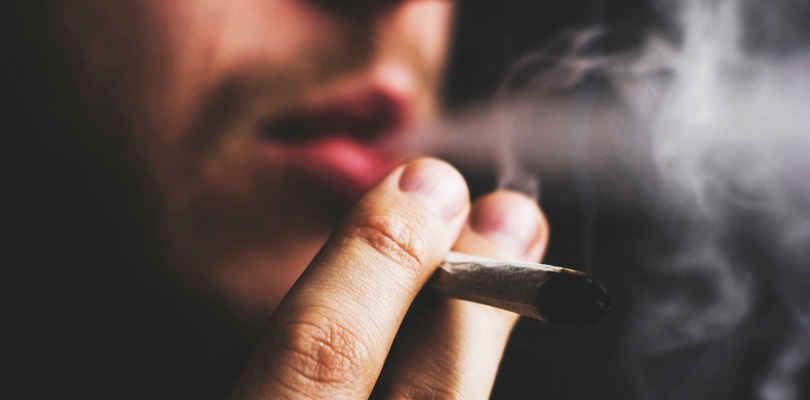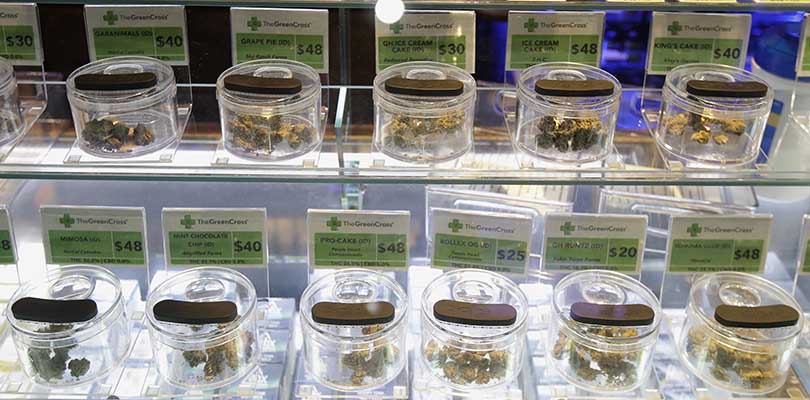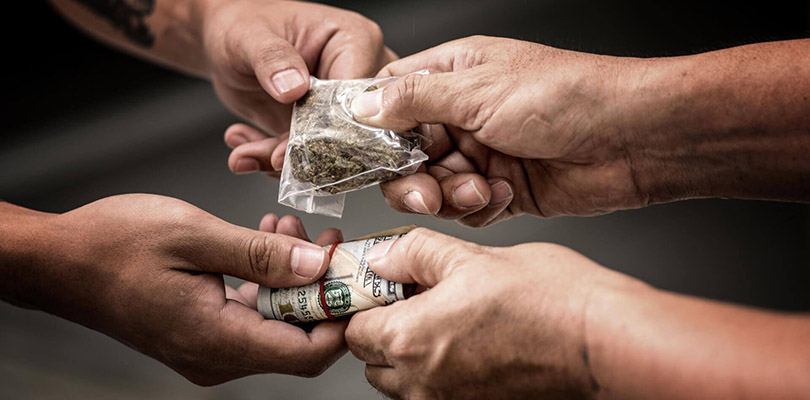The Effect of COVID-19 on the Cannabis Industry
How the coronavirus pandemic changed the global cannabis market - and what it may mean for the future. The coronavirus pandemic has made 2020 an interesting year for the legal cannabis industry. From lockdown-fueled sales increases to disruptions in the global manufacturing supply chain, COVID-19 has kept cannabis businesses on their toes all year long. Here’s a look at COVID’s effects on the cannabis industry, and what these changes may mean for the future of legal cannabis worldwide.
The coronavirus pandemic has made 2020 an interesting year for the legal cannabis industry. From lockdown-fueled sales increases to disruptions in the global manufacturing supply chain, COVID-19 has kept cannabis businesses on their toes all year long. Here’s a look at COVID’s effects on the cannabis industry, and what these changes may mean for the future of legal cannabis worldwide.
Lockdowns Led to Increased Cannabis Consumption
As countries throughout Europe and North America responded to the growing threat of coronavirus infection with lockdowns and stay-at-home orders in early 2020, retail sales of marijuana increased dramatically. While many consumers panic-bought bulk quantities of household staples like toilet paper, recreational and medical marijuana consumers stockpiled weed. However, not all of these large quantities were saved for a rainy day – as marijuana consumption also reportedly rose during the coronavirus pandemic.
Coping with pandemic-induced stress, anxiety, insomnia, and the utter boredom of being suddenly confined to home were common reasons cited for this uptick in usage. Over half of cannabis consumers were already accustomed to using it when home alone, making weed feel like a socially acceptable outlet for relief from stress and boredom (unlike solo consumption of alcohol). Concerns over the connection between coronavirus infection and overall lung health led many cannabis consumers to opt for edibles instead of smoking and vaping. Consumption of CBD (cannabidiol) products also saw a significant rise during COVID.

Coping with pandemic-induced stress, anxiety, insomnia, and the utter boredom of being suddenly confined to home were common reasons cited for this uptick in usage.
Dispensaries Declared Essential Businesses
In a big win for the cannabis industry (and those who rely on cannabis for their health), many countries declared dispensaries “essential businesses,” permitting them to stay open and operational during stay-at-home orders. This designation adds a layer of credibility to the marijuana industry, which may present the industry with a stronger position in the negotiation of future legislative efforts. Consumer demand throughout this global crisis has highlighted legal marijuana’s potential to remain a “recession-proof” industry.
Cannabis sales increased dramatically during the coronavirus pandemic, with purchase trends pointing to individual consumers making less-frequent dispensary trips, but buying larger quantities on each trip. However, these marked sales increases were not seen in every legal cannabis market. These massive cannabis sales increases generally occurred at dispensary locations that already had a strong, local customer base. Dispensaries that relied on tourism traffic for the bulk of their sales saw decreased revenue, as leisure travel took a nosedive in 2020.
CBD Sales Increase, But Small Companies Struggle
Sales and consumption of CBD products also rose during the coronavirus pandemic. Online CBD sales, in particular, showed significant increases, but only for CBD companies that already had well-established customer bases. Without the ability to get their products in front of new consumers and would-be business partners at brick and mortar stores, trade shows, or other events, fledgling CBD companies have struggled to capture enough market share to stay afloat in 2020.
Both Medical and Recreational Weed Deemed Essential
While most governments declared both adult-use and medicinal marijuana “essential,” a few only gave this designation to medical cannabis. In the state of Massachusetts, for example, Governor Charlie Baker ordered adult-use dispensaries closed in March 2020, fearing that the availability of recreational weed would attract an influx of out-of-state visitors. Several dispensaries unsuccessfully attempted to sue the state over this order. However, Massachusetts’ adult-use dispensaries did receive approval to reopen in late May 2020. The famed weed-selling “coffee shops” of the Netherlands were also ordered closed in the country’s initial shutdown. However, concerns over a rise in black market cannabis sales prompted a quick reversal of this decision.

While most governments declared both adult-use and medicinal marijuana “essential,” a few only gave this designation to medical cannabis.
Cannabis Dispensaries and COVID Safety Measures
The necessity of enhanced safety measures to prevent the spread of coronavirus paved the way for new standards of convenience and point-of-sale technology in the retail cannabis market. Online orders, curbside pickup, and even home delivery of cannabis were disallowed in most places prior to the pandemic. After months of safely and effectively employing these new standards, the door may remain open for dispensaries to continue offering these options in the post-pandemic future. Dispensaries across the world have also added enhanced cleanliness protocols and redistributed employee schedules to limit potential COVID-19 exposure among staff and patrons.
No Coronavirus Relief for U.S. Dispensaries
Despite their “essential’ designation, cannabis’s illegal status at the federal level meant dispensaries were not eligible for the CARES Act – the financial relief stimulus funding the U.S. government offered to businesses impacted by COVID-19. Not only were dispensaries and other cannabis businesses ineligible for government assistance during the pandemic, but their federally illegal status also restricts cannabis companies’ access to general business loans and insurance plans covering pressing concerns such as healthcare and paid leave for sick or furloughed employees. Dispensary safety measures have included reducing staff hours to accommodate staggered employee shifts and encouraging employees to stay home if they feel ill. Compensating employees for this additional time can quickly become very expensive without access to appropriate employee insurance policies.
Black Market Cannabis and Coronavirus
Even in regions with access to legal weed, many cannabis consumers have turned to the black market for their lockdown stash. The general desire to avoid the extra cost of tax and retail markup and/or concerns about access to popular strains drove an increase in pandemic cannabis sales on the black market. However, some black market regulars have gone the opposite route, opting instead to spring for dispensary weed due to concerns about purity, contamination, and safety of point-of-sale contact during the pandemic.

Even in regions with access to legal weed, many cannabis consumers have turned to the black market for their lockdown stash.
Coronavirus and Cannabis Manufacturing Delays
In the early months of 2020, many companies across the cannabis manufacturing sector experienced sudden supply chain disruption. The coronavirus outbreak in China led to delays in the export of components manufactured in densely populated areas like Shenzen and Wuhan. Specific items affected by these delays included components used to manufacture vaporizers and related products, cannabis cultivation equipment (including LED lightbulbs), extraction and lab testing equipment, and even product packaging materials.
COVID-19 and Marijuana Cultivation
Fortunately for the essential and still-expanding legal cannabis industry, commercial marijuana growers experienced little COVID-related disruption. Safety measures have been at the forefront of commercial cultivators’ 2020 concerns. Staggering employee schedules to reduce physical contact and increasing reliance on hands-off technology wherever possible were common strategies adopted by cannabis farmers navigating pandemic safety.
Industrial hemp production has likewise remained stable overall, and hemp farmers were even eligible for some financial farm aid. Cannabis seed banks have generally stayed fully operational through the pandemic. However, many seed banks did limit their international shipping options during the widespread shutdowns of early 2020.
A Trend Toward Home Growing
With coronavirus requiring people to spend more time at home, many cannabis enthusiasts and medical marijuana users have started growing their own weed. The sense of uncertainty prompted by the coronavirus pandemic has motivated many to take their cannabis supply into their own hands – ensuring safe, cost-effective access no matter what else goes on in the world. Many others have turned to cannabis cultivation as a fun and interesting home-based hobby – with highly worthwhile yields.

With coronavirus requiring people to spend more time at home, many cannabis enthusiasts and medical marijuana users have started growing their own weed.
A Shaky Year for Marijuana Investments
Despite reports of increased consumer spending on legal marijuana, cannabis stocks and investments had a few issues of their own during the coronavirus outbreak. Many cannabis companies (especially newer ones) went into 2020 already carrying considerable supply chain debt. This tendency toward over-leveraging contributed to a dip in cannabis stock prices near the beginning of the pandemic.
Excessive valuation was another major concern of would-be cannabis investors. Knowing that the dramatic revenue increases seen at the onset of the lockdowns were unlikely to be sustainable, cautious investors chose to step back from cannabis for a while. The stock market as a whole dipped over the summer of 2020, but by late September, the cannabis market index had regained some ground, sitting close to its pre-pandemic range. Despite its tendency toward over-leveraging (while cannabis businesses continue to have fewer traditional business loan options available to them), the cannabis industry is still positioned for growth. As the pandemic dust settles, some of these distressed cannabis and CBD companies may end up being highly worthwhile, low-cost investment opportunities.
COVID-19 Forced Cancellation of Marijuana Trade Shows
The worldwide cancellation of marijuana trade shows, conventions, and other events in 2020 has made it harder for new cannabis and CBD companies to get their brands and products in front of an audience and for publicly traded companies to show off their latest offerings to would-be investors. Companies that count on marijuana conventions, festivals, or other events for a large portion of their revenue have also struggled to keep their heads above water during the coronavirus outbreak.
Coronavirus and Cannabis Legalization Efforts
Black Market Sales Highlight the Need for Legalization
The consumer demand for an ample cannabis supply to get through pandemic life – and willingness to do so illegally if need be – was illustrated by dramatic increases in demand for black market cannabis across the globe, particularly in locations where legal cannabis venues were shut down. These concerning statistics give a strong argument for cannabis legalization as a public health concern. When Spain’s private cannabis clubs were ordered closed, the result was a spike in black market sales as well as massive price inflation on illicit weed. Other countries have seen similar results. Street prices have also increased in countries where cannabis is still illegal, such as France.
United States Legislation Efforts Slowed
In the U.S, the coronavirus outbreak slowed the momentum of getting several new marijuana legalization initiatives onto the November 2020 ballot. This process requires the collection of signatures, but, of course, in-person canvassing has been unsafe for most of 2020. However, the marijuana industry’s status as an essential business has given it an air of increased credibility, which may reflect favorably in future legislation efforts.

In the U.S, the coronavirus outbreak slowed the momentum of getting several new marijuana legalization initiatives onto the November 2020 ballot.
Despite COVID-19, the marijuana industry is poised to grow
The coronavirus pandemic gave rise to a host of new challenges for the still-young legal cannabis industry. However, COVID-19 also gave the cannabis industry a unique opportunity to step into the spotlight, showing the world just how essential legal cannabis is to the lives and health of individual citizens and to the public as a whole.
